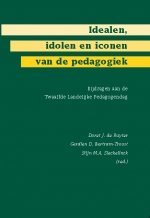
On Non-Ideal Aims of Education and their Neutrality
Productgroep Idealen, idolen en iconen van de pedagogiekOmschrijving
As a preliminary, it is important to make the distinction between ‘ideals’ and ‘aims’ of education, although these terms are often used interchangeably. Once distinguished, it becomes clear that one may be sceptical about the one but not about the other. We want to rebut a radical sceptical challenge to the aims of education, yet stay noncommittal as to scepticism about the educational ideals. Only the radical sceptic denies, or has serious doubts about the thesis that (moral) education is teleologically and axiologically structured, that is, goal-directed and value-based. Against post-modern scepticism in educational theory, we maintain that it is vital to safeguard this teleological and axiological structure of education.
In this paper, we argue as follows. After distinguishing (ordinary) educational aims from educational ideals, we try to refute Paul Standish’s sceptical attack on the very idea of non-ideal aims of education. Once the teleological and axiological structure of education is in place (again), we briefly defend our view that normative agency is the generic educational aim. One advantage of our view is that it remains neutral with regard to the important opposition between liberal and non-liberal aims.
